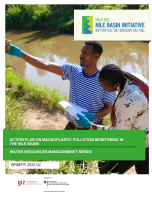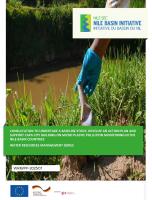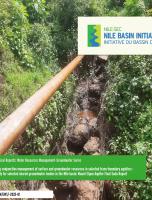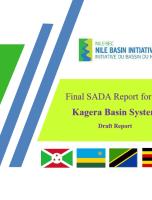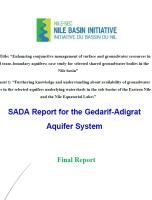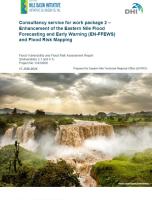Abstract
Plastic pollution in freshwater systems poses a growing threat to ecosystem health, public wellbeing, and livelihoods—both globally and in the Nile Basin. This Action Plan focuses on macroplastic, which are more visible, easier to monitor, and actionable compared to microplastics. It presents a tangible framework for establishing a basin-wide macroplastic monitoring programme over a five-year period, aligned with the strategic objectives of the Nile Basin Initiative (NBI).
The Action Plan is grounded in a set of guiding principles that emphasize feasibility, inclusivity, and sustainability. It proposes low-cost, field-tested methods suitable for both expert personnel and citizen science groups. The Action Plan suggests to promote the integration of citizen science approaches leveraging the public awareness and engagement in plastic pollution. The integration of citizen science requires structured guidance, training, and visibility feedback mechanisms to ensure data quality and sustained participation. The Action Plan emphasizes that data management – submission, hosting, quality control, evaluation and publication is as important as the monitoring itself to promote the basis for informed decisions. Clear protocols for data ownership, access, and sharing are proposed to ensure transparency and usability of monitoring data. To launch the programme effectively, pilot implementation is proposed at selected sites across different countries. These pilots will refine protocols, test data systems, and build practical experience. Lessons learned will inform full-scale implementation and regional coordination.
Though NBI will need to mobilize additional financial resources, the Action Plan proposes several immediate Action Items to initiate a pilot monitoring programme which can be started with minimal additional resources when aligned with ongoing water quality and hydrological monitoring programmes.
